June 17, 2025 | 10:20 GMT +7
June 17, 2025 | 10:20 GMT +7
Hotline: 0913.378.918
June 17, 2025 | 10:20 GMT +7
Hotline: 0913.378.918
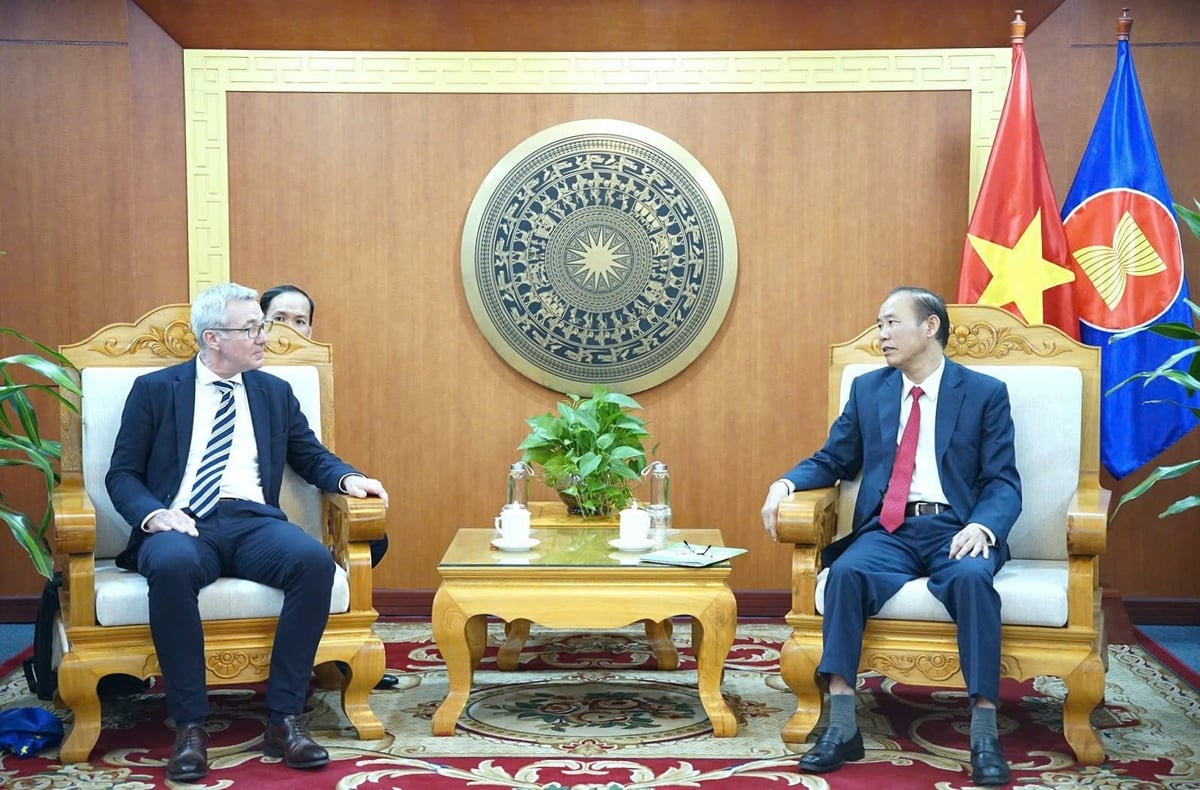
Deputy Minister of Agriculture and Environment Phung Duc Tien (right) received Mr. Robert Figgener, President of the European Animal Protein and Fat Processors Association (EFPRA). Photo: Linh Linh.
On the afternoon of March 17, Deputy Minister of Agriculture and Environment Phung Duc Tien met with the European Fat Processors and Renderers Association (EFPRA), led by its President, Robert Figgener.
Deputy Minister Phung Duc Tien stated that Vietnam's agricultural sector is increasingly expanding into global markets. Vietnam's livestock products will be able to meet international standards by guaranteeing the use of high-quality animal feed constituents. In recent years, Vietnam's livestock industry has experienced an annual development rate of 4.5% to 5.9% and contributes approximately USD33 billion to the country's GDP.
Nevertheless, the export of animal-based products and animals remains modest. The nation exports approximately USD1.6 billion in animal fodder, while its agricultural exports in 2024 totaled over USD62 billion. Conversely, its exports of animals and animal products amount to only USD533 million. Consequently, the acquisition of high-quality input materials, including flesh and bone meal, is essential for the development of large-scale livestock, and the strategic focus on exports is a critical component.
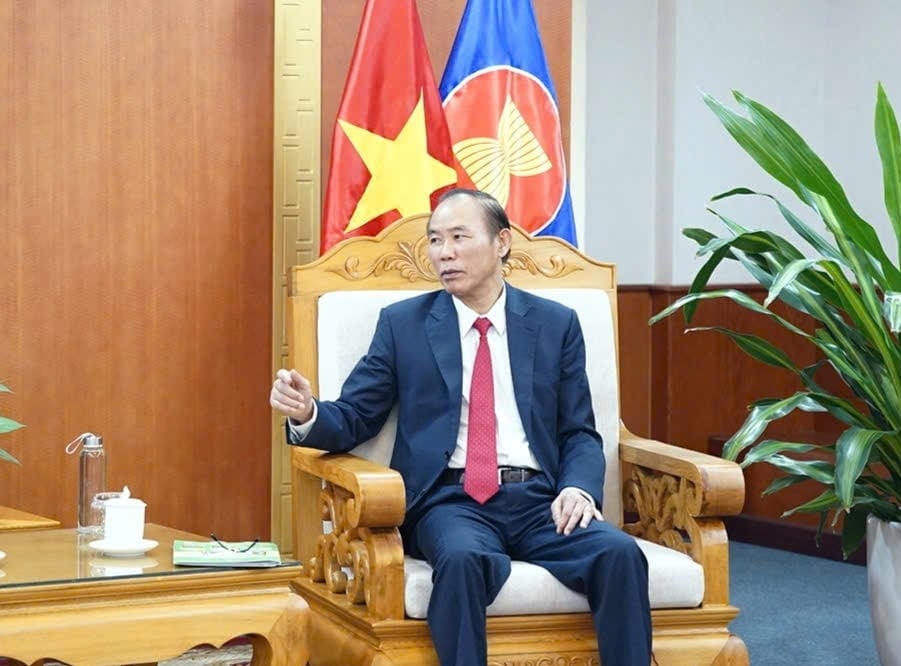
Deputy Minister Phung Duc Tien said that good input materials for large-scale livestock development are important factors, focusing on export is an important direction.
The Deputy Minister expressed his optimism that the EFPRA delegation would achieve substantial success during their encounters with Vietnamese enterprises. He confirmed that the Ministry of Agriculture and Environment is in favor of collaboration initiatives that strive to modernize and sustainably develop the livestock sector, with a particular focus on exports.
Robert Figgener, President of EFPRA, expressed his admiration for Vietnam's remarkable agricultural growth figures, particularly in the livestock sector. He declared that the objective of this visit was to investigate potential partnerships within the animal feed industry.
Vietnam has established specific plans for agricultural development, with a particular emphasis on livestock production. Figgener expressed his admiration for the development figures and expressed his willingness to contribute his expertise and knowledge to improve the quality and productivity of Vietnam's livestock sector. Additionally, he observed that Vietnam's requirements are well-suited to solutions that pertain to high-quality, secure protein feed sources.
The EFPRA delegation expressed their readiness to contribute European expertise to assist Vietnam in improving the standards of its livestock industry and meeting the rigorous quality standards of export markets. Figgener underscored that bilateral relations would continue to fortify as a result of the robust foundation of cooperation between European animal protein processing companies and Vietnamese animal feed manufacturers.
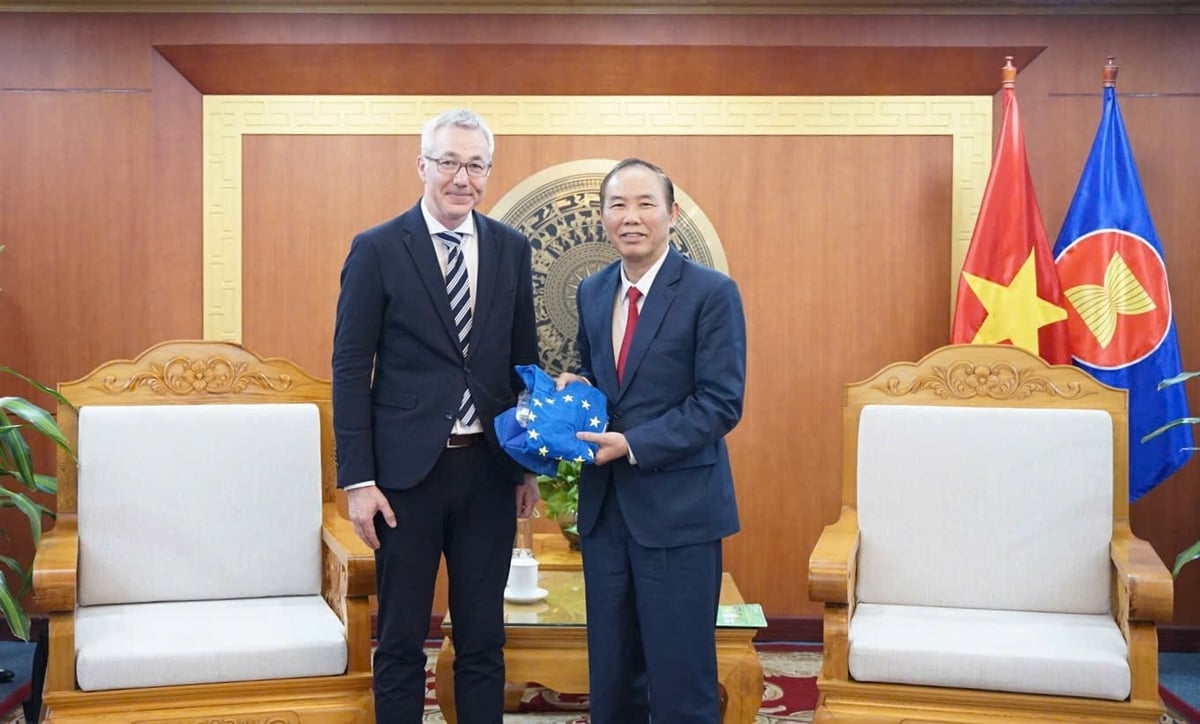
EFPRA President Robert Figgener presents a souvenir to the leader of the Ministry of Agriculture and Environment. Photo: Linh Linh.
EFPRA representatives emphasized that their organization offers a diverse selection of protein products, including those derived from a variety of animal sources (including ruminants, rodents, poultry, and swine), to satisfy the diverse needs of the livestock sector. They expressed their conviction that these products, which are manufactured in accordance with the rigorous food safety and quality standards of Europe, would provide substantial advantages to Vietnam's livestock industry, animal protein production, and animal feed sector.
Furthermore, EFPRA representatives expressed their optimism that Vietnam is considering revising its legal framework to allow the importation of processed animal by-products from Europe.
According to Deputy Minister Phung Duc Tien, Vietnam has implemented a comprehensive legal framework for the livestock and veterinary sectors. Next, these regulations will undergo an assessment and revision to facilitate their compatibility with the global marketplace.
The Deputy Minister reaffirmed that "Vietnam welcomes the best animal feed products from the EU" and expressed confidence in the quality of EFPRA's products. Nevertheless, he underscored the importance of pricing that is reasonable and in accordance with the conditions of Vietnamese enterprises.
European Fat Processors and Renderers Association (EFPRA) is the organization that represents the animal by-products processing industry in Europe. It is the foremost authority on the production, use, and management of animal-based fats and proteins. EFPRA works in conjunction with regulatory agencies, research institutes, and supply chain partners to encourage the responsible, sustainable, and secure use of animal-derived by-products.
EFPRA runs 250 processing facilities that employ 437 distinct production lines. The association processes approximately 17.1 million tons of raw materials annually, resulting in the production of 2.6 million tons of oil and 3.7 million tons of animal protein.
A delegation of 10 representatives from EU member states and five agricultural attachés from EU countries stationed in Hanoi comprise the EFPRA delegation that is currently in Vietnam. The delegation is led by Mr. Robert Figgener, President of EFPRA.
Translated by Dieu Linh

(VAN) The political and cultural insulation of Japan’s beloved grain is falling apart, and experts warn the country’s relationship with the staple will have to adapt.

(VAN) Noting risks, report examines impacts of avian influenza, changing trade patterns since 2022, fish fraud, and shipping industry’s net-zero goals.

(VAN) Mr. Tran Quang Bao, General Director of the Forestry and Forest Protection Department, met and worked with the International Wood Products Association to promote cooperation in the field of timber trade.

(VAN) China's outbound shipments of rare earths in May jumped 23% on the month to their highest in a year, though Beijing's export curbs on some of the critical minerals halted some overseas sales.

(VAN) To sustain capital flow, administrative reform alone is not enough; what farmers truly need is an ecosystem where both government and businesses grow together in support.
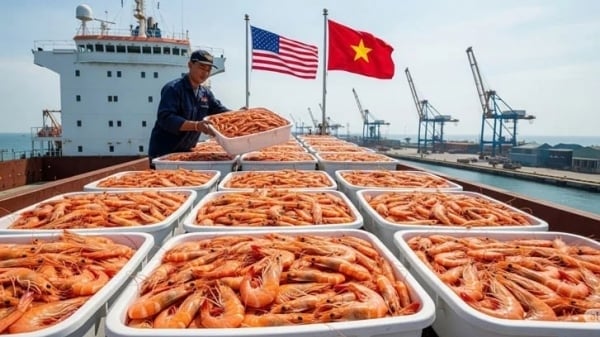
(VAN) Vietnam and the United States are proactively working together, each in their own way, to ensure that every container of agricultural goods carries not just products, but also long-term trust and value.
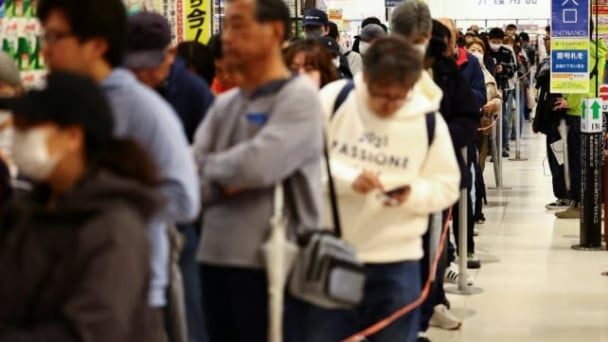
(VAN) Stores have started selling rice from the government’s stockpile to feed demand for the staple.